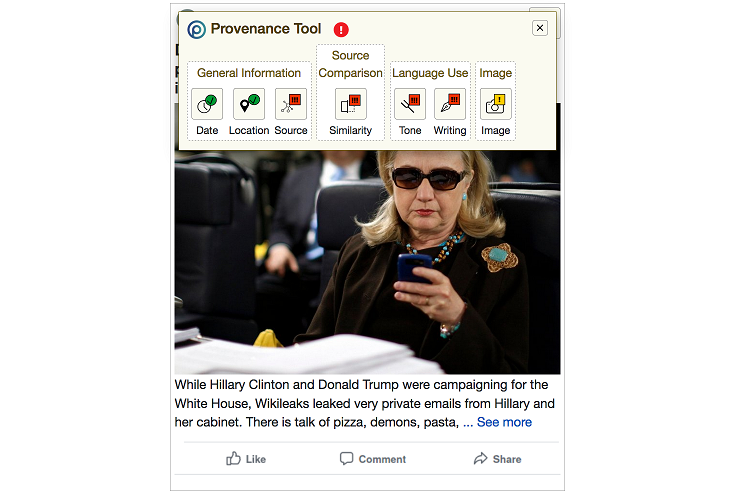By Dr. Eileen Culloty
Dr Eileen Culloty is a postdoctoral researcher at the DCU FuJo Institute where she works on countering disinformation as part of the EU Provenance project.
False and misleading information is a major threat to social and political stability. It is implicated in the resurgence of vaccine-preventable diseases, efforts to undermine the political process, and the amplification of social divisions. Yet, online disinformation is a complex problem with many contributing factors. In response, many countries have provided additional funding for media and information literacy.
This citizen-focussed approach is also championed by the Provenance project, a large European research project led by DCU FuJo. The aim is to help citizens evaluate content while they browse the web or social media. An iconographic ‘Verification Indicator’ provides contextual information about pieces of online content. For example, it provides information about the origin of the content, its similarity to other content, the quality of the writing including the use of loaded or highly emotional language, and the degree of visual manipulation if any.
The overall idea is to slow down the spread of disinformation by asking people to pause before they hit ‘like’ or ‘share’. This goal is supported by the latest research which finds that people’s judgements about online information improve once they are asked to think about the accuracy of a message or are forewarned about manipulation tactics.
The Provenance tool is currently in an early stage of development and we need feedback from a wide range of citizens and experts to help us improve it. To that end, we invite you to test the tool and provide feedback through this online survey: https://qnode.eu/studies/pv02c/
In particular, we need feedback from media and information literacy experts; those who work on the front lines to empower citizens. The survey is detailed and somewhat time consuming – approximately 20 minutes – but your participation will help us build a better tool and hopefully one that will support the work of media and information literacy practitioners.
Before developing the tool, we conducted a non-random survey with 290 participants in Ireland. We found that participants were able to find reasons to distrust disinformation news, but struggled to evaluate articles by mainstream media. This finding fits with wider concerns about using media and information literacy as a response to disinformation. That is, it can endow individuals with a false sense of confidence in their abilities (Bulger and Davison 2018) and it can encourage scepticism towards all media (boyd 2019). To counteract these trends, we hope our Provenance tool will be useful for recognising high-quality content as much as it is for avoiding low-quality content. We believe this balance is essential for combatting false and misleading information.
If you would like any more information about the survey or the wider project, please contact Eileen.culloty@dcu.ie
